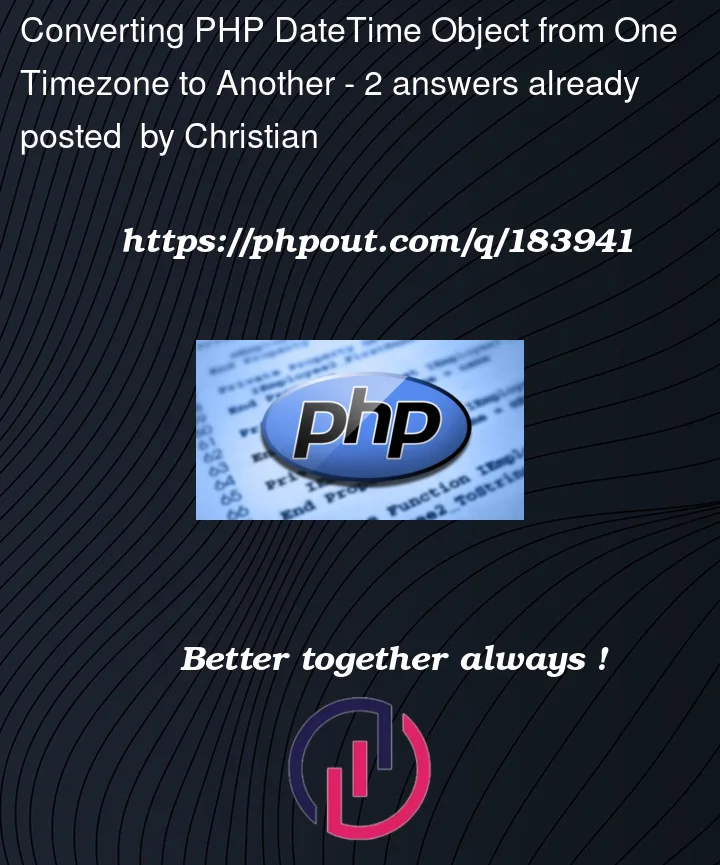I have a PHP DateTime Object where the timezone has already been set to America/New_York.
I’d like to clone this object and and change the timezone of the clone to be UTC.
The resulting time should be the same moment, but the time of day should be adjusted for the new timezone.
Most examples I see suggest converting to and from string formats, which I’m not getting accurate results with.




2
Answers
To clone a PHP DateTime object and change the timezone of the clone to UTC, you can utilize the
DateTime::setTimezonemethod along with theDateTime::formatmethod to create a new DateTime object.Here’s an example code snippet that demonstrates this:
In the above code, we first create the original DateTime object with the timezone set to ‘America/New_York’. Then, we clone the original DateTime object using the
clonekeyword to create a new object with the same date and time values. Next, we change the timezone of the cloned object to ‘UTC’ using thesetTimezonemethod. Finally, we retrieve the formatted date and time in the UTC timezone using theformatmethod.The output will display the original DateTime in the ‘America/New_York’ timezone and the cloned DateTime in the ‘UTC’ timezone.
Note: It’s important to use the
clonekeyword when creating the clone of the DateTime object to ensure that the original object remains unaffected.Most of the time in PHP, you are better off using DateTimeImmutable objects, which work the same as DateTime objects, but all their methods return a new object, rather than changing the existing one.
With that, there is a method to do exactly what you want: DateTimeImmutable::setTimezone. Adapting the example from that manual page (see live demo):
If you really need to work with mutable
DateTimeobjects, you will need to clone the object first, then modify the clone, to avoid it being modified in place (live demo):If you are given a
DateTimeobject by some other code, and want to useDateTimeImmutablein your own code, you can use DateTimeImmutable::createFromMutable or (since PHP 8.0) DateTimeImmutable::createFromInterface (which accepts eitherDateTimeorDateTimeImmutableobjects), like this (live demo):